“The breeding and selection process of garden roses is different compared to pot roses, as there are other elements to take into consideration. Garden roses have to be more resistant, do well outside in the weather, and remain healthy. Our garden roses take about 10-15 years to develop before we put them on the market, so it is a long process. The results, however, are garden roses of the best quality possible, many of which have won awards,” shares Rosa Eskelund, owner of Danish rose breeding company Roses Forever. In this article, Eskelund shares more details on their two lines of garden roses, and how they breed and select towards award-winning quality. 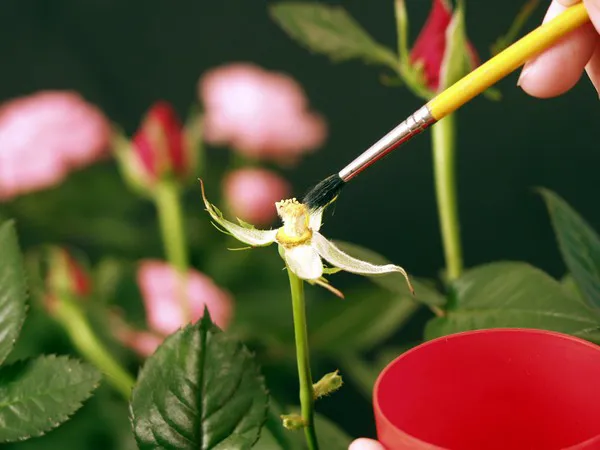
Rose breeding in Denmark at Roses Forever 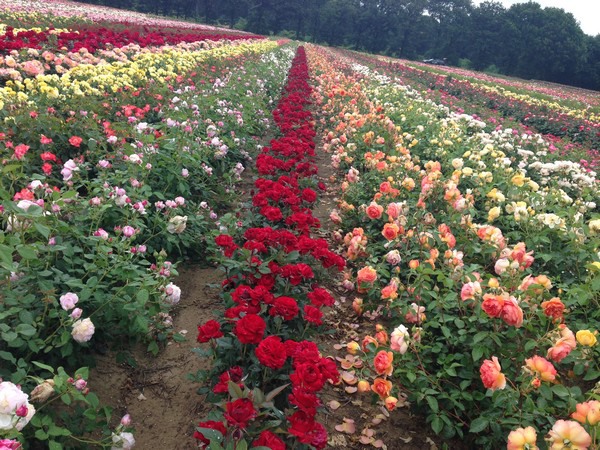
One of the test fields with Sweet Home Roses and Plant’n’Relax garden roses
The two lines of garden roses
The first line of garden roses that Roses Forever introduced are the Plant’n’Relax roses. “We breed and select them in the fields in Denmark and The Netherlands. Every year, we have around 500 roses in test, but we only select the best ones of them. In the test of all our garden roses, for both lines, we also pot the best ones outdoors to see if they perform well on the pot field. After many years of testing, also in test gardens around the world, we then make the decision of which ones to put into the market.”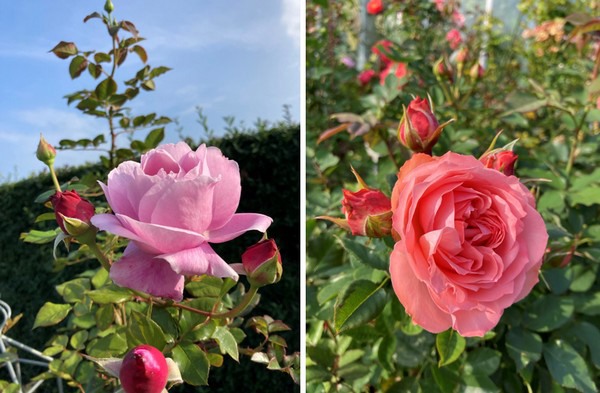
‘Our Last Summer’ rose and ‘What a Wonderful World’ Plant’n’Relax
Eskelund explains that the newer line of garden roses, the Sweet Home Roses, is quite different. "These are specially selected to force early spring flowering in both cold and warm greenhouses before the normal garden roses are flowering. That is what makes this a unique product on the market. There are seven colors available and the roses will immediately bring the summer atmosphere in early spring on the terrace, both in big pots and small beds.”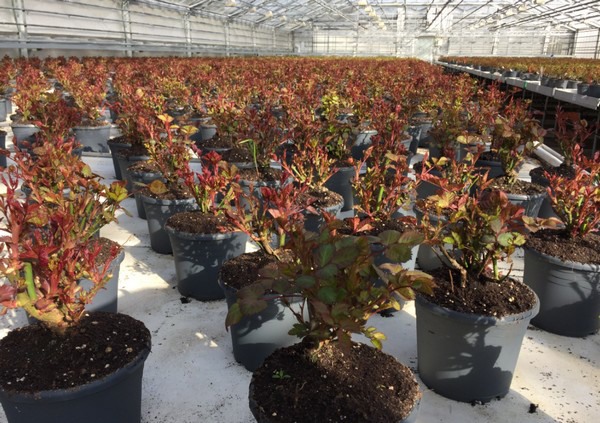
The Sweet Home Roses in the greenhouse, potted and ready to start growing 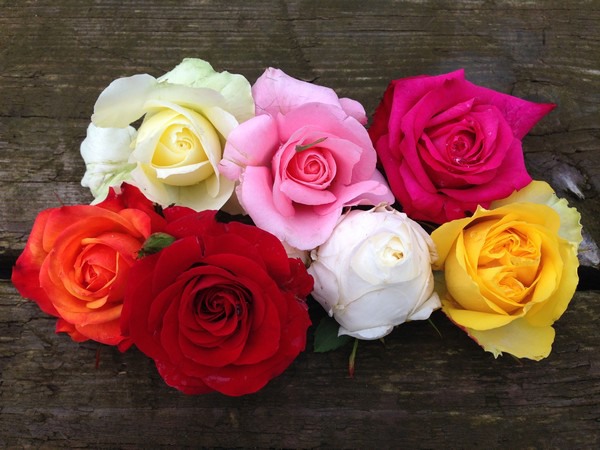
The Sweet Home Roses come in seven colors
Winning awards
According to Eskelund, their garden roses are a popular addition to parks around the world; they are in The Netherlands, France, and Germany, for example. Moreover, they have already won lots of gold medals and awards. “Earlier this year, our Royal Estelle Plant ‘n’ Relax won the Golden Rose in Baden-Baden. This is an international honorary prize that is said to be Germany’s highest honor for roses.” It is planted in the Rose Society Garden (New Rose Garden) in Baden-Baden for two years, where an international jury of rose growers and experts are gathering every year to evaluate the new roses of the current year and finally award the most beautiful one. Out of the nearly 200 roses, Royal Estelle stood out and was awarded the Golden Rose, and also received a gold medal in the category of floribunda roses.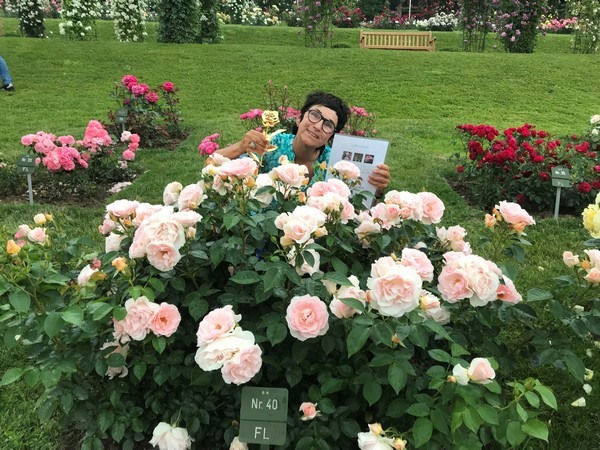
Rosa Eskelund behind Royal Estelle Plant 'n' Relax with the golden rose and award
No-spray test
That is not where the recognition for their garden roses ends. “In Switzerland, two of our roses won in a no-spray park test. Here, the flowers are tested without any chemicals, so they have to be naturally healthy and strong. We won with the Plant‘n’Relax The Matador and Royal Diva. These two we can now mark with no-spray labels. When we send these roses, our growers can put this label on them to indicate that these roses have already been tested for over two years without any spraying.”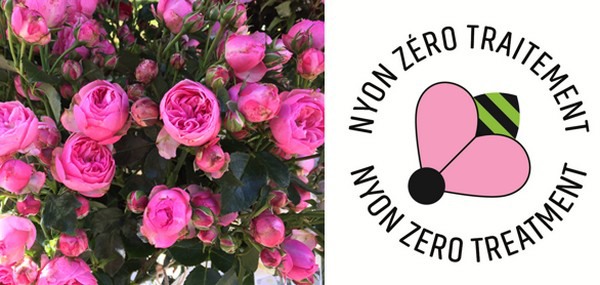
No spray winner ‘The Matador’ which won the gold medal, and the ‘no spray’ label
How to select award-winning roses
So what is the secret behind breeding award-winning garden roses? Eskelund explains that a lengthy and careful selection process is necessary. “When the rose is selected in the breeding stage, after the first two-three selections we deliver them to the growers who grow them in the fields. I then personally look at them several times throughout every summer to see their performance. The best ones, out of the 500 possible candidates, I take home to my own garden where they will be for many years. After some years, I can evaluate whether the plants' leaves keep looking healthy for a long time in the autumn, for example, which is a very important element for garden roses. After my own evaluation, I can let the growers know which ones I want to continue making more of. Some of the recent additional focuses in our garden rose breeding is fragrance and being pollinator-friendly.” The lengthy process definitely pays off; “Growers from all over the world are asking to grow our award-winning Royal Estelle, and we are already sold out for 2022.”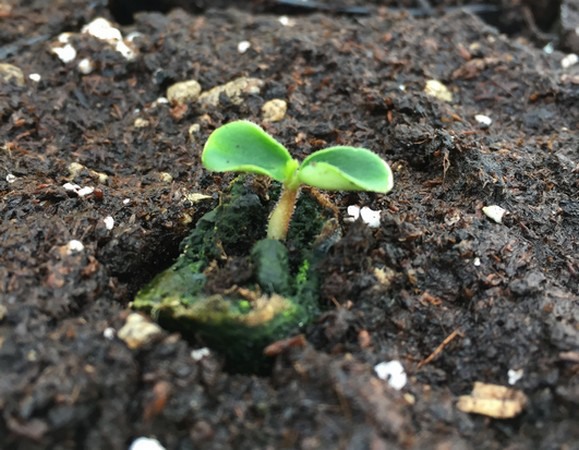
A little new rose plant, maybe a world star after 10-15 years?
For more information:
Roses Forever
Rosa Eskelund
re@roses-forever.com
www.roses-forever.com
Instagram: @roses.forever.dk
